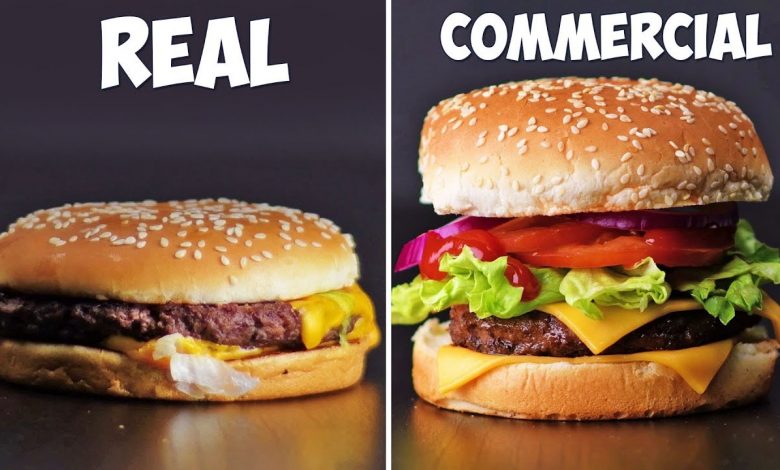
This past week media reports in the UK revealed plans by the British government to ban junk food adverts before 9 pm on television and online.
The ban will not affect adverts of staples and vegetables. The plan is so high-level that it was fronted by images of the British Prime Minister who reportedly lost over 6 kg of weight during his recent hospitalisation with Covid-19.
The government highlighted that this ban was part of a comprehensive strategy to tackle overweight and obesity and they believe these adverts are, one way or another, responsible for the obesity being witnessed in British society. As with many decisions affecting the public, there have been arguments for and against the decision.
Many others feel the ban does not go far enough. In this article, I will explain why overweight and obesity are issues of public concern. I will then explain why there is a growing focus on advertisers. Remember in the last article I wrote that the food industry in one western country spent over $240 billion on adverts in one year.
The obesity crisis
The World Health Organisation defines obesity and overweight as abnormal or excessive fat accumulation that presents a risk to health. In simple terms, overweight or obese person is too fat for their height and we must note that one becomes overweight then obese meaning as fat accumulation increases you become overweight then further down the line you are considered obese.
Overweight and obesity are considered risk factors for several chronic diseases, including diabetes, heart diseases and cancer. As highlighted in previous articles, these conditions seriously affect the quality of life for sufferers and put a strain on the health system. I am sure that if you look around you will see several people you suspect are overweight or obese.
You are probably right, the problem of overweight and obesity has been growing steadily over the past couple of years and has reached levels that should concern governments. A lot of work has gone into identifying the root causes of this problem and many governments are beginning to act.
The number of people who are either obese or overweight has tripled since 1975 and does not look like it will slow down soon. The WHO estimates that from 2011 to 2030, losses in gross domestic product worldwide due to diabetes, including both direct and indirect costs, will total US$ 1.7 trillion, US$ 900 billion in high-income countries and US$ 800 billion in low- and middle-income countries.
A few governments, including South Africa, have already introduced a tax for products with high sugar content. This sugar tax is meant to discourage the production of products that contribute to the problem of obesity and overweight while also providing funding for the health system that is responsible for picking up the pieces.
This is the real reason behind the sudden proliferation of sugar-free and low-sugar beverages in the market. Many of the players in the industry probably wouldn’t have acted without the big disincentive of tax. Despite the adoption of taxes such as the sugar tax, many authorities and governments feel this is not enough, obviously because the problem is still growing. Thus the focus on advertising.
Why the focus on advertisements?
I’m not sure if you have figured it out yet, but the reason why adverts for junk food are being pushed beyond 9pm in the UK is to reduce exposure to children. The growth of the obesity crisis is more marked amongst children. One of the proponents of the ban lamented that the current generation of children will be the first to ‘live shorter lives than their parents’.
This is no small feat, the average life expectancy has been on the rise for a very long time. Children who grow up overweight or obese are likely to stay that way in adulthood and will likely die prematurely. We have all heard that most of the Covid-19 cases that become severe and require hospitalisation are those with underlying issues. Well amongst those underlying issues are obesity and many of the conditions associated with obesity such as diabetes and heart disease to name a few. This highlights the importance of dealing with the obesity crisis now rather than later.
The main reason why governments have decided to act on advertisers is that they have failed to regulate themselves. Many industries self-regulate with success and this can be seen in sport where most disputes and rules are decided and determined within the industry. A dispute on whether a team fixed a match will rarely end up in a court outside the fraternity.
The accounting and health professions are similar areas where a high degree of self-regulation exists. A chartered accountant who meets the standards set by the profession will rarely fail a moral test outside the profession. As a result, governments can comfortably watch from afar in such cases.
However, the advertising industry will go beyond what is acceptable and right just to corner as much of the market as possible. It is estimated that children in New Zealand see over 40 adverts for junk food each day. Even in Africa, the prime-time slots are crowded with alcohol and fast foods. Therefore many public health experts have been pushing governments to intervene and set the rules.
I will end by emphasising, once more, that we have a growing problem with overweight and obesity and the true cost of this issue will be paid by future generations. In the next article, I will reveal how advertisers take the choice out of our hands through innovative campaigns. In the meantime, I invite you to take note of how many junk food and alcohol adverts you see on your TV between 6 and 9pm every day. Any contributions and questions are welcome on nyathictsn@gmail.com.
Brief Bio:
Craig Nyathi is a Nutritionist registered with the Allied Health Practitioners Council of Zimbabwe. He has over ten years’ experience practising public health nutrition in Zimbabwe. He writes in his personal capacity.







Great to see these health related articles on Cite. Keep them coming